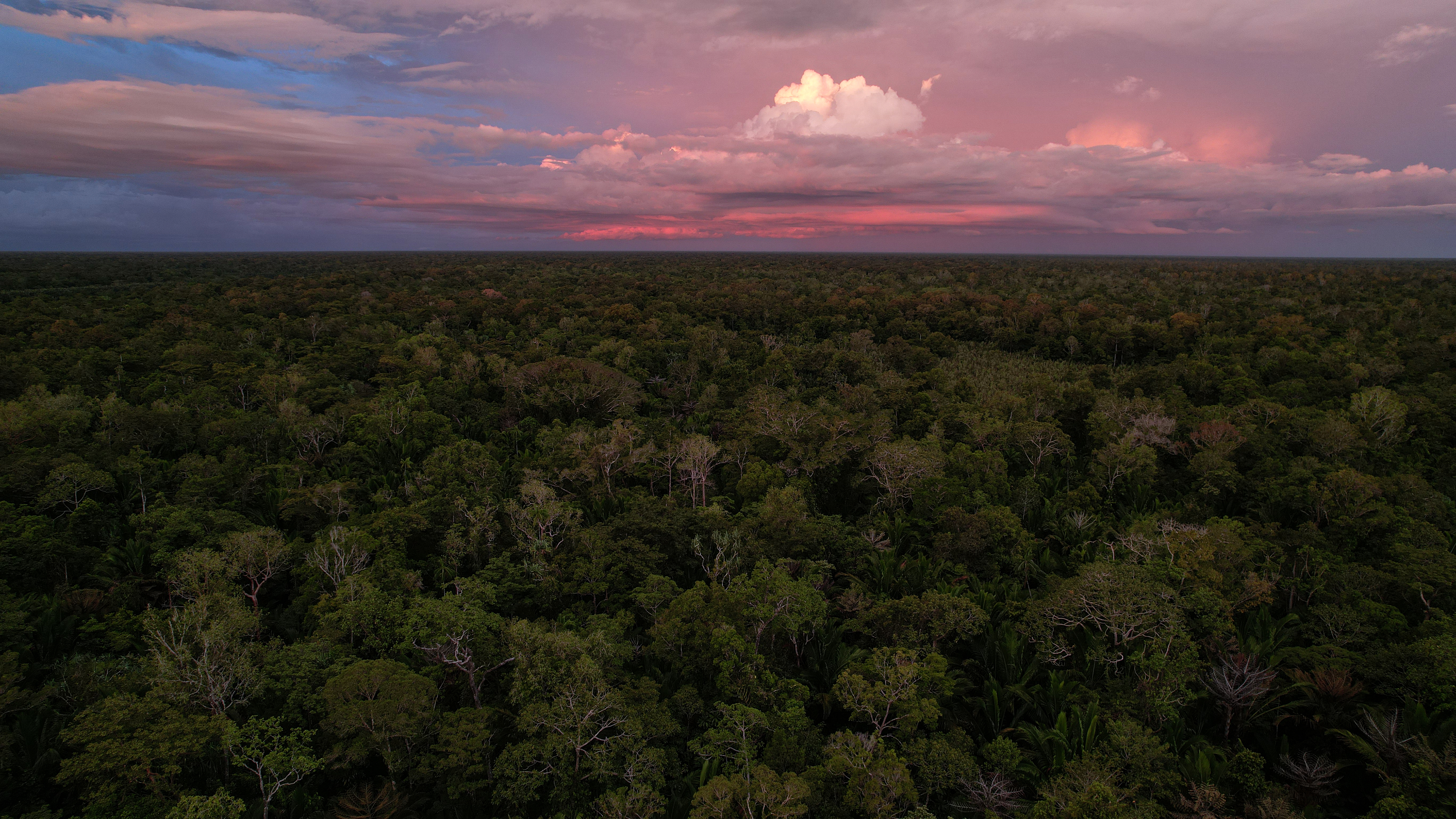ADVISORY TO BUYERS AND INVESTORS OF ROYAL GOLDEN EAGLE/ASIA PACIFIC RESOURCES INTERNATIONAL LIMITED
On 28 January, the Royal Golden Eagle Group’s (RGE) APRIL announced a Sustainable Forest Management Policy (SFMP).WWF cautiously welcomed APRIL's announcement at the time. WWF and many other NGOs have long criticized the RGE Group and APRIL for the devastating impact their operations have on Indonesia's rainforests, peatlands, species and local communities. APRIL has a long history of making commitments that it has failed to live up to. The company promised several times in the past to use plantation fiber only, each time moving the date years ahead. TheJanuary 2014 announcement pushed the deadline from an original 2009 to 2019.
Since then WWF has been monitoring the company’s operations and its commitments.
APRIL and APRIL suppliers continued natural forest clearance on peat soil in North Kalimantan , in violation of the key SFMP commitment that “APRIL sources fiber from non-High Conservation Value Forest (“HCVF”) areas that have been identified through independent HCV assessments, based on Indonesian HCV toolkit and peer-reviewed by HCV Resource Network”. RGE associate, PT. Toba Pulp Lestari cleared natural forest in North Sumatra . In neither case, HCV assessments were peer-reviewed by the HCV resource network.
APRIL, as part of the SFMP,established a Stakeholder Advisory Committee (SAC).WWF sees its role as a memberof the SAC in continuously engaging and monitoring the companyto strengthen and effectively implementing its policy and ensuring that the SAC becomes a credible and independent instrument of change .WWF’s participation in the SAC in no way implies endorsement of APRIL’s products or its current practices on the ground. Any use of the WWF name or logo in APRIL documentations or interactions with buyers and investors is in violation of the terms of WWF’s participation in the SAC.WWF will leave the SAC if its terms continue to be violated and no progress is made improving the SFMP.
Recently, the SAC recommended that APRIL issued a moratorium on operations in all HCV areas which are still under review and that this must apply to all APRIL suppliers. The SAC, after reviewing the results of a joint verification mission of HCV peatland harvesting by an APRIL contractor in North Kalimantan,and receiving the very recently submitted HCV report prepared by Tropenbos yet to be discussed by SAC, expressed itsserious disappointment that, at best, a severe break down of communication occurred between APRIL, Adindo, and Tropenbos on such a critical issue of the SFMP.
APRIL has not yet responded to the SAC nor has it positively answered WWF’s or any other civil society organization’s calls to start a full moratorium and to improve its policy and operations , ,instead the company continues to clearnatural forest on peat.
Improved implementation of the SFMP and broad strengthening of the policy is urgently necessary. Most notably, the company should
1. extend its commitment to the rest of the RGE Group companies to include all the group’s mills in Indonesia, China and Brazil in the deal and make sure that no chips from global supplier concessions that are not compliant with the policy are received by those mills and to preclude having APRIL’s shareholders open new mills in new corporate configurations that do not fall under this policy,
2. immediately start a moratorium on all forest and land clearance and peatland development activities in all its supplier concessions, until independent High Conservation Value (HCV) are conducted and peer-reviewed by the HCV Resource Network,andHigh Carbon Stock (HCS) assessments are conducted and agreed to as recommended by NGOs, irrespective of whether questionable company guided HCV assessments had been performed in the past;
3. become a 100% plantation fibercompany in 2014 since without robust processes and independent monitoring HCV and HCSareafibercould continue to leak into the pulp mills,
4. make all the group’s suppliers’ concession holdings and theirwood supply plans publicly available for independent review so the impact of this policy can be judged,
5. fully commit to a 1 to 1 conservation compensationfor past deforestation and begin working with stakeholders to develop a comprehensive action plan of where, which forests are to be restored and protected under this commitment,
6. immediately invite key stakeholders for discussions aimed at improvingthe company’s policy, its implementation, and monitoring thereof,
7. respect the agreed role of the SAC in providing stakeholder engagement during the implementation of the SFMP, contributing to continuous improvement efforts and verifying conformance with the requirements set forth in the policy, by incorporating SAC's inputs and recommendations into APRILs management in a thorough and transparent manner.
WWF continues to recommend that companies wait and see before sourcing from and investing in APRIL and their associated business entitiesuntil APRIL/RGE improves the policy, independent 3rd parties have confirmed that the group has stopped draining peat soils and developing and pulpingHCV and HCS areas, and long-standing social issues have been resolved. WWF urges RGE and APRIL to comply with milestones similar to those developed by the Environmental Paper Network released last September, which can be found here: www.environmentalpaper.org/milestones.
WWF, together with local NGOs in the Eyes on the Forest and RPHK coalitionswill continue monitoring the company’s operation.
For questions, feel free to contact:
Aditya Bayunanda, abayunanda@wwf.or.id
Nur Maliki Arifiandi, nmarifiandi@wwf.or.id

